Navigating Time

Navigating Time:
Increasing Efficiency as Volunteers on Boards and Project Teams
In volunteer organizations such as NHRMA and your local chapter, time is a precious commodity. With colleagues to assist, projects to plan, deadlines to meet, and resources to manage, having time is often a constraint. Whether you are the team leader or member, you're tasked with the challenge of maximizing productivity and efficiency amidst the whirlwind of tasks and responsibilities.
Consider these tips along your route to getting things done. These thought-provoking concepts may reshape your approach to time management and efficiency, guiding you toward newfound productivity and success. That may get you to the state of RELIEF!
The Power of Prioritization: As you set out on your tour of duty as a volunteer or team member, you realize the importance of charting your calendar of commitments. Discern between tasks of greatest importance and those that merely demand attention. Keep a written list of TASKS (the small things, coupled with a date for each) and PROJECTS (the big, time-oriented things that take place whether or not you organize your tasks or suffer from last-minute stress if you wait to get things done). Set priorities so that the tasks you complete relate to the big project deadlines.
Multitasking versus Focus: The myth of multitasking: although well known, people persist in doing it. Consider that when dividing your focus, you are distracted and that only dilutes your effectiveness. Instead, commit to the art of single-tasking, dedicating your energy wholeheartedly to each endeavor.
The 80/20 Rule: Amidst the chaos, the 80/20 rule remains solid. Learn to identify the vital few tasks that yield the greatest results. You focus your efforts where they matter most, maximizing your impact with minimal effort. Can you set up repeating tasks for those duties that occur with regularity?
Setting SMARTY Goals: Be intentional. Setting SMARTY goals becomes your roadmap, guiding your time investments with clarity and purpose. With each milestone achieved, you draw closer to your project's ultimate destination. Didn’t you know there was a “Y” on goal statements? Research on goal accomplishment indicated that if you state the why for doing something, you will have a tool for getting things done when stressed, tired, or otherwise disengaged.
Time Blocking: Time blocking means that in addition to due dates showing on your calendar, so do work periods. If you are working on Project A or Goal X, how much time will it take to get something done – and when? If you have a report due, will two blocks of time over two days give you sufficient research and writing time on one day and proofing and editing time on another? By allocating dedicated blocks of time to specific tasks, you reclaim control over your schedule – and improve your output. Distractions fade into the background as you immerse yourself in focused, uninterrupted work.
Embracing Technology Wisely: In the digital age, electronic technology has replaced paper and typewriters. But nobody wanted to relax by using the typewriter – it just didn’t have the allure of social media! Consider which apps save time and which cost time. Then get organized so you can find things on your computer!
The Art of Collaboration: Collaboration relates well with delegation: share the things that need to get done. By entrusting tasks to capable hands, you multiply your efforts and achieve more together. You must put a due date on your calendar and check with your teammates BEFORE their tasks are due. Without fail, check in. You will not only avoid surprises; you will build the team.
A Better Way of Saying No: In your quest for efficiency, you learn the power of saying no. You realize that every yes comes with a cost, and not every opportunity aligns with your project's priorities. By setting boundaries and guarding your time judiciously, you preserve your focus on what truly matters. Coupling a refusal with an option is a new skill: can you suggest a different date or refer the task to someone who is interested in upskilling through learning opportunities? If you have to say no, suggest alternatives to the task owner.
Continuous Improvement Requires Note-Taking: As you progress, stop to engage in continuous improvement. Reflect on past successes and failures, extracting valuable lessons along the way. With each iteration, you refine your approach, honing your skills and strategies to perfection. Document your findings. Try this: on the calendar entry for your project completion, open the notes and capture your thoughts each time a ‘better way’ or ‘lesson learned’ arises. You will have all notes in one place when it comes time to review.
Work-Life Balance and Celebration: The pursuit of balance suffers when deadlines loom and priorities compete. You may work overtime and make sacrifices to honor your commitment. You understand that true efficiency extends beyond the confines of the project realm. But when you reach the goal, celebrate! Breath! Nurture your well-being and take a moment for meaningful connections outside of work; you replenish your spirit and sustain your passion.
As you embark on your quest for efficiency within your volunteer organization, remember this: the journey may be long and arduous, but with the right mindset and strategies at your disposal, you can navigate the currents of time with grace and purpose. Volunteering within your professional organization has career AND personal rewards!
On Linkedin, join in with your ideas on this topic - what have you discovered that others might consider?



.png)



